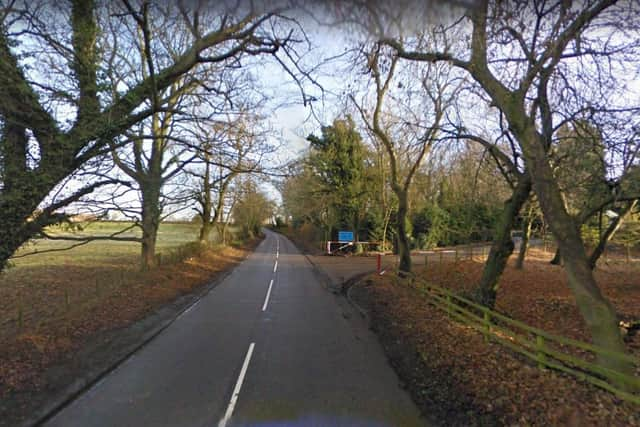New Northumberland plant turning farming waste into energy approved
and live on Freeview channel 276
And while there were some mixed views from members, it was approved by nine votes to one, with two abstentions.
Advertisement
Hide AdAdvertisement
Hide AdNorth East Grains, a cooperative of about 80 farming businesses, taking in 60,000 tonnes of grain a year to store, dry and process, is a high energy user in terms of electricity, oil and gas.


According to the planning officer’s report, it ‘is seeking to lower its overall energy costs and adopt a greener environmental footprint’ through this development, which would have an overall generating capacity of 500kw, with any surplus to be put into the National Grid. Three new full-time jobs would also be created.
Currently, lower quality grain that can’t be used in farming is transported to ethanol production plants in Teesside and Hull.
If approved, this material would form between 26% and 45% of the feedstock for the digester and the remainder would be made up of grass and maize silage, cattle farmyard manure, cereal grains and possibly chicken manure from the cooperative’s members. The spent feedstock, known as digestate, would be supplied back to the farms as bio-fertiliser and soil conditioner.
Advertisement
Hide AdAdvertisement
Hide AdThe site, which would feature three digester tanks each measuring about 28 metres across and up to 15.8 metres in height, is in the green belt.
However, the advice of planning officers was that while there would be harm to the green belt, it is outweighed by the benefits of this scheme, chiefly the sustainability, production of green energy, and the economic benefits for rural businesses, which count as ‘very special circumstances’.
However, Longhirst Parish Council and seven residents had objected to the scheme based on its green-belt impacts, the scale, and potential noise and odour issues.
One of the other major concerns was the highways impact, based on the number of HGVs travelling to the site.
Advertisement
Hide AdAdvertisement
Hide AdA maximum of 40 (20 in and 20 out) movements per day would result from the new plant’s operation and this would be during the peak periods of May, June, July and October, with around seven movements a day envisaged in August and September and 12 per day between November and April.
Councillors heard that this represented a small proportion of the movements already permitted at the site and that this assessment was based on a worst-case scenario.
The response of the highways officer had said: ‘The main impact of the additional traffic flows occurs outside the current seasonal peak period and while there will be additional movements during this time, these are shown to be minimal.’
The council’s director of planning, Rob Murfin, told the meeting: “We often hear concerns about HGVs or traffic impact, which is understandable, but we have to look at it and say, is there a severe impact, which is the test under the National Planning Policy Framework (NPPF).
Advertisement
Hide AdAdvertisement
Hide Ad“Given this is the worst-case scenario, I would suggest we are some way from this being a severe impact.”
During the debate, there were questions over how green the scheme actually is from some committee members.
Cllr Jeff Reid said: “The reasons for doing it aren’t good enough, I don’t think I can support this.” He claimed that the environmental benefits are offset by the fact that the ‘fuel’ is being transported on HGVs ‘spewing out diesel fumes’.
Cllr Trevor Thorne pointed out that currently this material is transported much further afield, but Cllr Malcolm Robinson said the sustainability is a ‘red herring’ and the scheme is more about the benefits to this business, although it will reduce the draw on the national grid.
Advertisement
Hide AdAdvertisement
Hide AdHowever, Mr Murfin interjected to say that the sustainability of anaerobic digestion was not in doubt and it was supported by policies up to a national level.
And Cllr Richard Dodd, who moved approval and is a farmer himself, said: “Grain is now stored collectively, the regulations are such that not many farms can store it on site.
“Normally those wagons would be rattling out empty, so that’s a total waste of diesel. The manure would normally be spread on the land. Now it goes in to produce energy and then what comes out can be used on the land. There are benefits all the way through it.
“We would have to pass more opencasts and more fossil fuels, unless we start using these new technologies.”